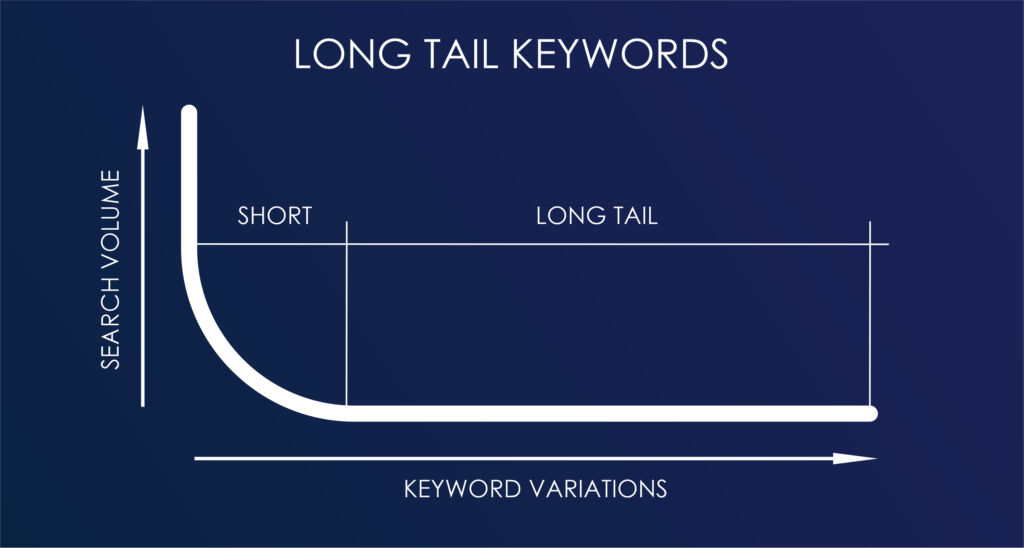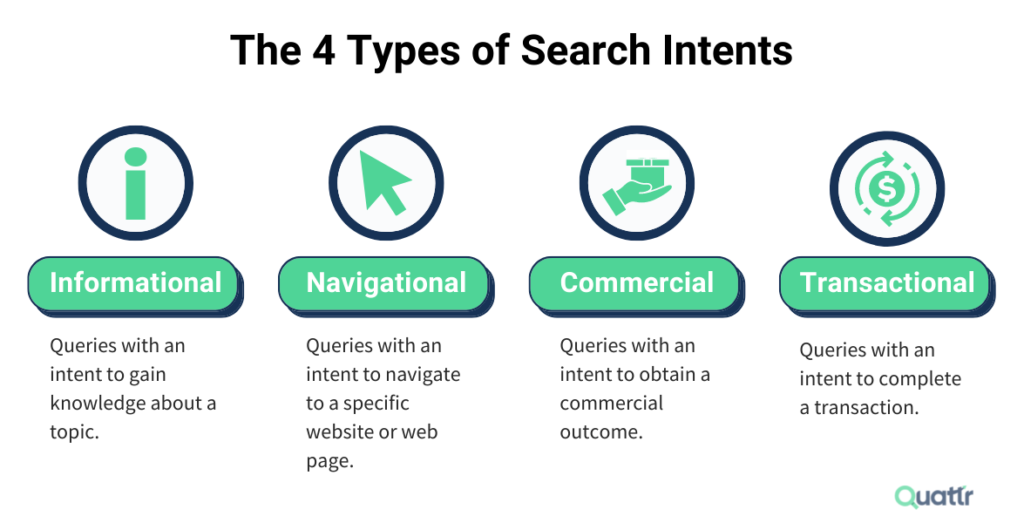Ever felt like keyword research is some kind of puzzle that only SEO experts can solve? You’re not alone! A lot of beginners (and even experienced marketers) get stuck trying to figure out which keywords will actually help their content rank. It’s like standing in a grocery store, staring at hundreds of snack options, wondering which one’s the best pick.
Keyword research isn’t just about stuffing random words into your content—it’s about understanding what people are searching for and how you can show up in those searches. Whether you’re writing a blog, running an online store, or trying to boost your website traffic, choosing the right keywords is the first (and most important) step.
But let’s be real—keyword research can be confusing. Should you go for high-volume keywords or low-competition ones? What about long-tail keywords? And do SEO tools really help, or do they just make things more complicated?
In this blog, we’ll break down why keyword research is crucial, the common mistakes beginners make, and most importantly, how to do it the right way (without losing your mind).

1.The Struggle of Finding the Right Keywords
Ever opened a keyword research tool and felt like you just stepped into a jungle? There are thousands of keyword options staring back at you, each with different search volumes, competition levels, and CPC (whatever that means, right?). It’s enough to make anyone’s head spin.
The biggest mistake? Picking keywords randomly just because they sound good or have high search volume. Choosing the wrong keywords can actually hurt your rankings instead of helping them. Imagine writing an in-depth blog on “best running shoes” when your actual business sells custom-made leather boots. People searching for running shoes won’t find your content useful, and search engines will pick up on that pretty fast. Result? Low rankings, low traffic, and a lot of frustration.
So, what really matters when picking keywords? Three things:
- Relevance – Does the keyword actually match your content and what your audience is looking for?
- Search Volume – How many people are searching for this keyword? Too low, and no one finds you. Too high, and you might be competing with giants.
- Search Intent – Are users looking for information, trying to buy something, or just casually browsing? If you target the wrong intent, even the best SEO strategy won’t help.
Getting these right is what separates a successful SEO strategy from one that just wastes time. But how do you actually find the right keywords? That’s what we’ll dive into next.

2. The Mistake of Using Highly Competitive Keywords
Ever tried ranking for a keyword like digital marketing or best smartphones and felt like your website was invisible? Well, you’re not imagining things. That’s the brutal reality of highly competitive keywords—they’re dominated by big brands, and breaking through is like trying to beat a pro athlete in a race when you just started jogging last week.
Why Competitive Keywords Are a Nightmare
High-competition keywords are those that everyone in your industry is fighting for. Companies with massive budgets, strong websites, and years of SEO experience have already secured the top spots. Google trusts them more because they have high authority, thousands of backlinks, and a constant flow of fresh content.
For example, let’s say you just launched a blog about digital marketing. You think, Hey, why not rank for “digital marketing” itself? Sounds logical, right? Well, not really. That keyword is dominated by industry giants like HubSpot, Neil Patel, and Moz. They’ve been ranking for years, and Google sees them as the most trustworthy sources. Your new blog, no matter how good, is like a tiny fish in a sea full of sharks.
The Smarter Approach: Low-Competition Keywords
Instead of going after the biggest keywords, look for low-competition keywords that still have a decent number of searches. These are often long-tail keywords (phrases with 3-5+ words), and they’re much easier to rank for.
For example:
🚫 Too Competitive: “Digital marketing” (500k+ searches, high competition)
✅ Better Option: “Digital marketing tips for small businesses” (lower competition, still decent searches)
By targeting these types of keywords, you stand a much better chance of ranking, getting traffic, and actually seeing results. It’s not about fighting with giants—it’s about finding smarter ways to get noticed.
Next, let’s talk about another common mistake: ignoring search intent. 🚀

3. Ignoring the Power of Long-Tail Keywords
A lot of beginners focus on short, generic keywords like “digital marketing,” “weight loss,” or “best laptops.” But here’s the problem—these keywords are too broad, way too competitive, and don’t tell you much about what the searcher actually wants.
That’s where long-tail keywords come in.
What Are Long-Tail Keywords (And Why Do They Matter)?
Long-tail keywords are longer, more specific phrases that usually have lower search volume but higher conversion potential. Instead of just “digital marketing,” a long-tail keyword would be:
✅ “Best digital marketing courses in Hyderabad”
✅ “How to start a digital marketing agency with no experience”
See the difference? These keywords give clear intent. Someone searching for “digital marketing” could be looking for anything—a definition, a job, a course, or just general info. But if they search for “Best digital marketing courses in Hyderabad,” they clearly want recommendations, meaning they’re closer to taking action.
How Long-Tail Keywords Bring Better Traffic
- They attract users who already know what they want.
- They’re less competitive, meaning you have a higher chance of ranking.
- They convert better because they target specific needs.
For example, let’s say you run an online bakery. Ranking for “cakes” is nearly impossible, but ranking for “best eggless chocolate cake in Vizag”? That’s much easier, and the person searching is likely looking to buy.
The Smart Approach: Use Question-Based & Specific Searches
One of the best ways to find long-tail keywords is by looking at question-based searches. Think of what your audience might type into Google:
❓ “What is the best laptop for video editing under 50k?”
❓ “How to do SEO for a new blog?”
Using tools like Google’s People Also Ask section or AnswerThePublic can help you find these question-based keywords that match what people actually search for.
So instead of chasing broad, impossible-to-rank keywords, focus on long-tail phrases that bring in highly targeted traffic. Up next, let’s talk about another big mistake—ignoring search intent. 🚀

4. Ignoring Search Intent – The Silent Ranking Killer
Ever searched for something on Google, clicked on a result, and then immediately hit the back button because it wasn’t what you were looking for? That’s search intent in action. If your content doesn’t match what users actually want, Google notices—and trust me, it won’t be doing you any favors.
What is Search Intent? (And Why It’s a Big Deal)
Search intent is the reason behind a search. Every time someone types something into Google, they have a specific goal in mind. If your content doesn’t fulfill that goal, it won’t rank well—no matter how perfect your keywords are.
There are four main types of search intent:
1️⃣ Informational – The user wants information.
✅ “What is SEO?”
✅ “How does intermittent fasting work?”
→ These people want knowledge, not a sales pitch.
2️⃣ Navigational – The user is looking for a specific website or brand.
✅ “Nike official website”
✅ “Facebook login”
→ If your site isn’t what they’re looking for, they’ll bounce.
3️⃣ Transactional – The user wants to buy something.
✅ “Buy iPhone 15 online”
✅ “Best deals on gaming laptops”
→ They’re ready to spend money—perfect for eCommerce sites.
4️⃣ Commercial Investigation – The user is comparing options before making a decision.
✅ “Best DSLR cameras under 50k”
✅ “Shopify vs WooCommerce for eCommerce”
→ These people are researching before purchasing.
Why Ignoring Search Intent Kills Your Rankings
Imagine you write a blog targeting the keyword “best protein powder”, but instead of listing and reviewing protein powders, your content just explains what protein is. A user looking for recommendations won’t find your blog useful. They’ll leave, and Google will take it as a signal that your content doesn’t match the intent.
The Fix: Align Your Content with Intent
Before targeting a keyword, ask yourself:
✅ What is the user looking for?
✅ Does my content directly answer their need?
✅ Do the top-ranking pages match my content format?
For example, if the top results for “best smartphones 2024” are list articles and comparison reviews, that’s what Google prefers. Writing a history of smartphones won’t get you ranked.
So, next time you do keyword research, don’t just look at search volume—make sure you’re matching the intent. Up next, let’s talk about why relying only on SEO tools can be misleading. 🚀

5. How to Find the Right Keywords: Practical Solutions
Now that we’ve covered all the common mistakes, let’s get to the real deal—how to actually find the right keywords without getting lost in a sea of data.
There are plenty of tools out there, from free ones to premium SEO powerhouses. You don’t need to use them all, but knowing how to use them will save you time and effort.
1️⃣ Google Keyword Planner – The OG of Keyword Research
If you want a free and reliable way to check search volume and competition, Google Keyword Planner is a solid choice.
📌 How to use it:
- Go to Google Keyword Planner (you’ll need a free Google Ads account).
- Click on “Discover new keywords” and type in your topic.
- You’ll get a list of keyword ideas with search volume, competition level, and estimated CPC (cost-per-click).
✅ Best for: Finding keyword ideas and understanding their popularity.
❌ Downside: Doesn’t give exact competition for organic SEO (it’s more for paid ads).
2️⃣ Ubersuggest – Free & Beginner-Friendly
If you’re new to SEO and want a simple tool, Ubersuggest (by Neil Patel) is a great option.
📌 How to use it:
- Go to Ubersuggest.
- Enter a keyword or topic, and it will show search volume, competition score, and keyword difficulty.
- Scroll down to see related keyword suggestions and even top-ranking pages for that keyword.
✅ Best for: Beginners who need easy-to-understand keyword data.
❌ Downside: Free version limits daily searches.
3️⃣ Ahrefs & SEMrush – The Pro-Level Tools
If you’re serious about SEO, Ahrefs and SEMrush are two of the best keyword research tools. They’re not free, but they provide deep insights.
📌 Why they’re powerful:
- Show keyword difficulty (how hard it is to rank).
- Provide click-through rates (CTR) to see if ranking is even worth it.
- Give detailed competitor analysis (which keywords your competitors rank for).
- Track backlinks and help with content ideas.
✅ Best for: Advanced users, businesses, and SEO professionals.
❌ Downside: Paid plans are expensive.
4️⃣ Google Autocomplete & “People Also Ask” – The Hidden Goldmine
Not a fan of tools? No problem—Google itself gives you keyword ideas for free.
📌 How to use it:
- Google Autocomplete: Start typing a keyword in Google, and it will suggest searches based on what people commonly type.
- People Also Ask: When you search for a topic, Google shows related questions in the “People Also Ask” section—these are real user queries!
- Related Searches (bottom of the page): More keyword ideas that people frequently search.
✅ Best for: Finding trending keywords and question-based searches.
❌ Downside: No search volume or competition data, so you’ll need a tool to check.
5️⃣ Competitor Analysis – Stealing (Ethically) from the Best
Instead of guessing keywords, why not check what’s already working for your competitors?
📌 How to do it:
- Use Ubersuggest, Ahrefs, or SEMrush to enter a competitor’s domain.
- See which keywords they rank for and how much traffic they get.
- Find content gaps—keywords they missed but you can target.
✅ Best for: Finding proven keywords that already bring traffic.
❌ Downside: You still need to create better content than your competitors.
Final Thoughts: The Smart Keyword Strategy
Keyword research isn’t just about finding words with high search volume—it’s about finding the RIGHT words that match your audience’s intent and have a realistic chance of ranking.
✔ Use long-tail keywords to target specific users.
✔ Check search intent before finalizing keywords.
✔ Mix free and premium tools for the best results.
✔ Spy on competitors to discover hidden opportunities.
Now that you know how to find the right keywords, it’s time to put them into action. Up next, let’s wrap things up with some final tips to make your SEO strategy a success! 🚀

6. Tips for Choosing SEO-Friendly Keywords
By now, you know how to find keywords, but the real challenge is choosing the right ones that actually help you rank. Many people pick keywords just because they have high search volume—but that’s only part of the equation. The secret? You need to balance search volume, competition, and user intent while keeping your content natural and readable.
1️⃣ Balance Search Volume, Competition & User Intent
🔹 Search Volume: A keyword with high search volume means more potential traffic, but it’s usually more competitive.
🔹 Competition: If a keyword is highly competitive (meaning big websites are already ranking for it), it’ll be tough to rank.
🔹 User Intent: Always ask—“Is this keyword bringing the right audience?” 10,000 visitors won’t matter if none of them convert!
✅ Example: Instead of choosing “best laptops” (high competition), go for “best gaming laptops under 60k in India” (specific, lower competition, and intent-driven).
2️⃣ Use LSI Keywords (Latent Semantic Indexing) for Relevance
Google is smart—it doesn’t just rank pages based on one keyword anymore. It looks at related terms to understand the overall topic. These are called LSI (Latent Semantic Indexing) keywords.
📌 Example: If you’re writing about “healthy diet for weight loss”, Google expects to see words like:
✔ low-calorie foods
✔ meal plans
✔ protein intake
✔ calorie deficit
💡 How to find LSI keywords?
- Google Autocomplete (Type your keyword and see what pops up.)
- LSIGraph (A free tool for finding related terms.)
- Google’s “Related Searches” section at the bottom of the page.
3️⃣ Local SEO Keywords Matter for Businesses
If you have a local business, you MUST target local keywords to attract nearby customers.
📌 Example: Instead of just “cake shop”, go for:
✅ “Best cake shop in Vizag”
✅ “Affordable wedding cakes in Hyderabad”
✅ “Eggless chocolate cakes near me”
🔹 Bonus Tip: List your business on Google My Business and optimize your profile with these keywords for local SEO rankings.
4️⃣ Avoid Keyword Stuffing & Keep It Natural
Once upon a time, people stuffed keywords everywhere (and it worked!). But today, Google penalizes keyword stuffing—it looks spammy, and users hate it.
📌 Bad Example (Keyword Stuffing):
👉 “If you’re looking for the best cake shop in Vizag, our best cake shop in Vizag has the best cakes in Vizag. Visit our best cake shop in Vizag today!”
📌 Good Example (Natural Use):
👉 “Looking for delicious cakes in Vizag? Our bakery offers freshly baked treats, perfect for any occasion!”
💡 Golden Rule: Write for HUMANS first, Google second. If your content reads naturally and provides value, SEO will follow.
Final Thoughts: Mastering the Art of Keyword Selection
🔹 Pick keywords that match user intent.
🔹 Use long-tail and LSI keywords for better rankings.
🔹 Leverage local SEO if you’re targeting a specific region.
🔹 Don’t force keywords—let them blend naturally into your content.
With the right keyword strategy, your content won’t just rank—it’ll attract the right audience and drive real results.
Conclusion: Master Keyword Research & Boost Your SEO without any Keyword Research Confusion
Keyword research doesn’t have to be a confusing mess. With the right approach, you can find the perfect keywords that bring traffic, boost rankings, and actually help your website grow.
Here’s a quick recap:
✔ Avoid highly competitive keywords (especially if your site is new).
✔ Use long-tail keywords for better targeting and higher conversions.
✔ Leverage free & paid tools like Google Keyword Planner, Ubersuggest, and Ahrefs.
✔ Focus on LSI keywords to improve relevance and topic authority.
✔ If you’re a local business, optimize for local search terms.
✔ Write for humans, not just search engines—no keyword stuffing!
SEO success isn’t just about stuffing keywords into content—it’s about choosing the right ones and using them smartly. Now that you have the knowledge, it’s time to put it into action!
🚀 Start your keyword research today and watch your rankings grow!















